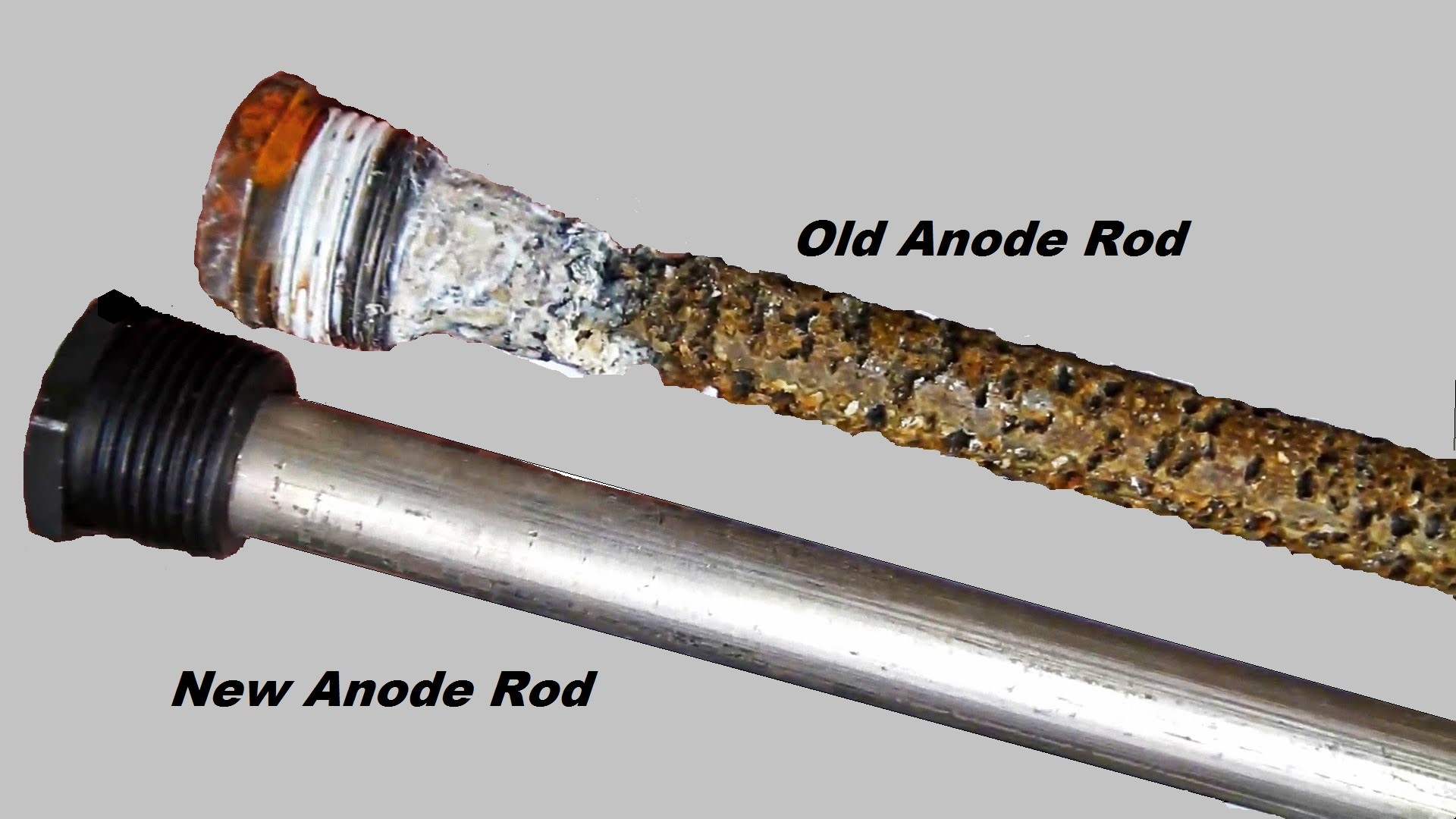 There are all kinds of reasons to have your water heater professionally inspected once a year. But ultimately, it comes down to two simple benefits: with regular preventative maintenance, your water heater will operate with increased efficiency and greater safety.
There are all kinds of reasons to have your water heater professionally inspected once a year. But ultimately, it comes down to two simple benefits: with regular preventative maintenance, your water heater will operate with increased efficiency and greater safety.
For purposes of this blog, let’s focus on one simple yet critical aspect of our inspection: your system’s anode rod. It’s a steel wire wrapped in magnesium, zinc, or aluminum. Its purpose is to protect the inside walls of your water heater tank by attracting corrosive elements in the water supply to itself. For that reason, it’s also referred to as a sacrificial anode rod.
How Do I Know if My Anode Rod Needs Attention?
When the anode rod has depleted to the point that it needs to be replaced, you may notice a brown tint in your hot water supply, the result of internal rusting that the anode rod can no longer absorb.
You might also notice a clanging sound coming from inside your system’s storage tank. As the anode rod corrodes (particularly aluminum models), it can crumble or break off and settle in the bottom of the tank. When the tank fills with water, pieces of the rod may bang against the sides of the tank and create a pretty unwelcome noise. Worse, that kind of banging is harmful to the tank since, over time, it can lead to a crack in the interior walls and, ultimately, water leakage.
Signs Your Anode Rod Needs to be Replaced:
- Water Quality Issues: If you see rust-colored water or sediment particles coming from your taps, it could be a sign of a worn anode rod and a corroding water heater tank.
- Rotten Egg Odor: A deteriorating anode rod can produce hydrogen sulfide gas, leading to a foul, rotten egg-like odor in your hot water.
- Corrosion: Inspect the anode rod for any signs of wear. If it is significantly corroded or has diminished to less than half of its original thickness, it’s time for a replacement.
- Old Water Heater: If your water heater is 10 years old or older, it’s wise to replace the anode rod as a preventive measure, even if there are no visible signs of corrosion.
Checking and replacing an anode rod, if needed, is such a simple step, but it’s also one that’s frequently ignored until the damage is already done. To help keep your water heater in peak operating condition, contact Burton today and request our performance and safety inspection. Like all of our plumbing work, you’ll receive a guaranteed upfront price quote and our 100% customer satisfaction guarantee.






